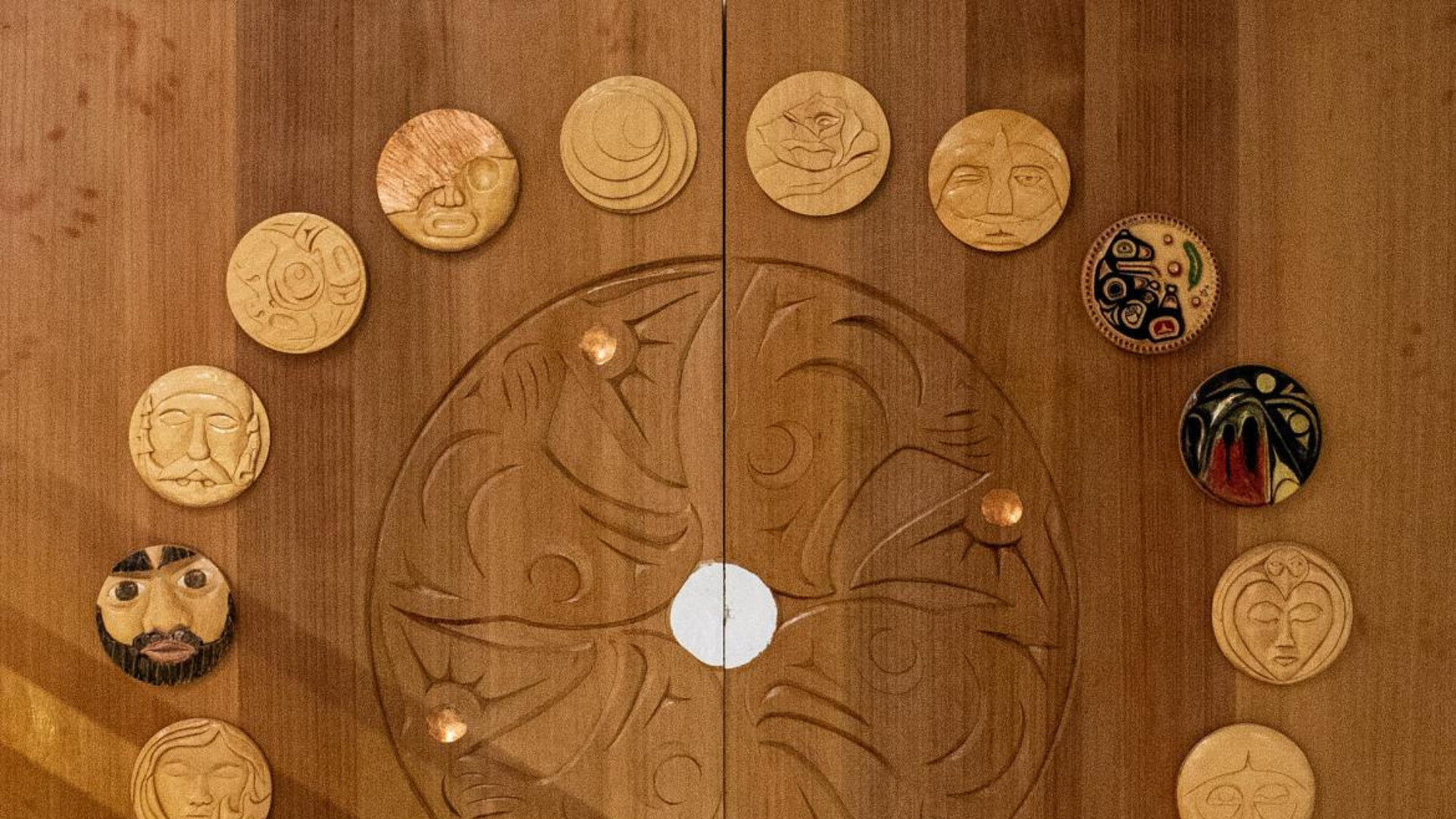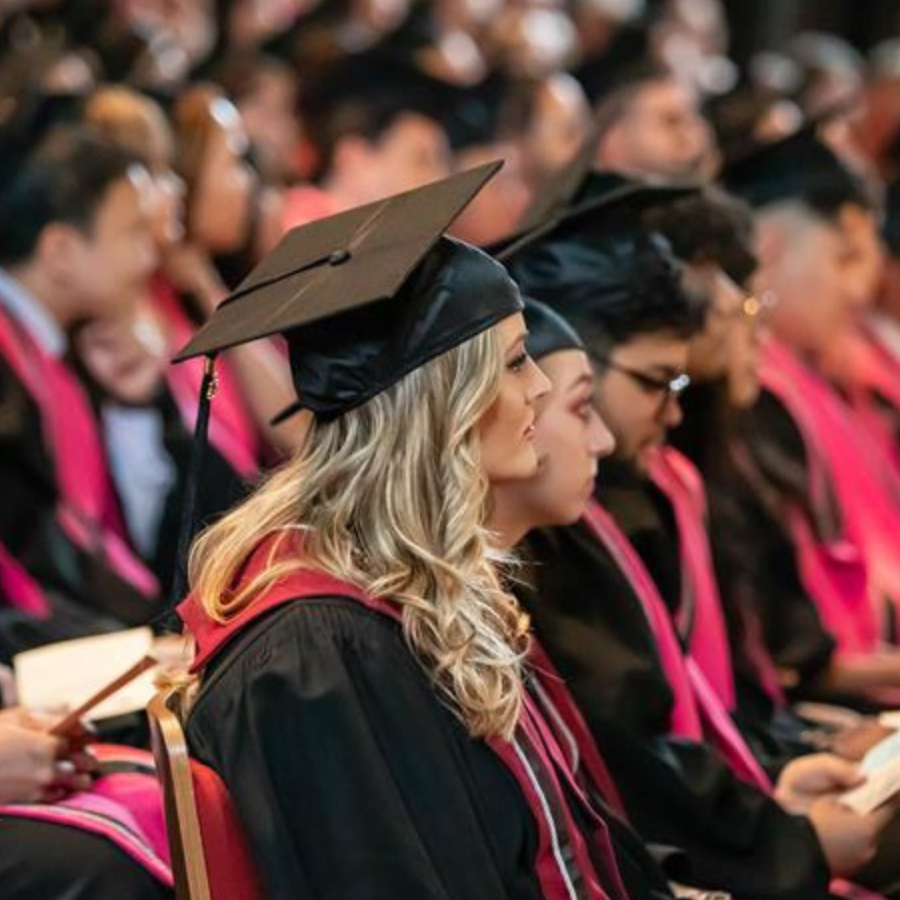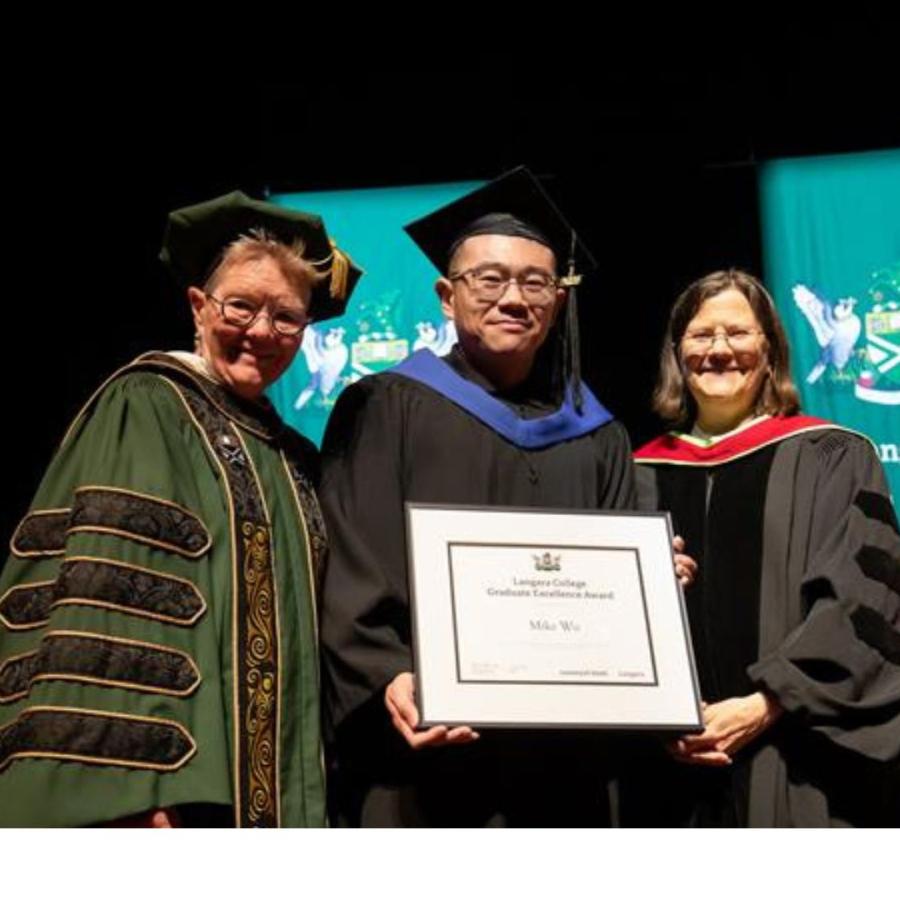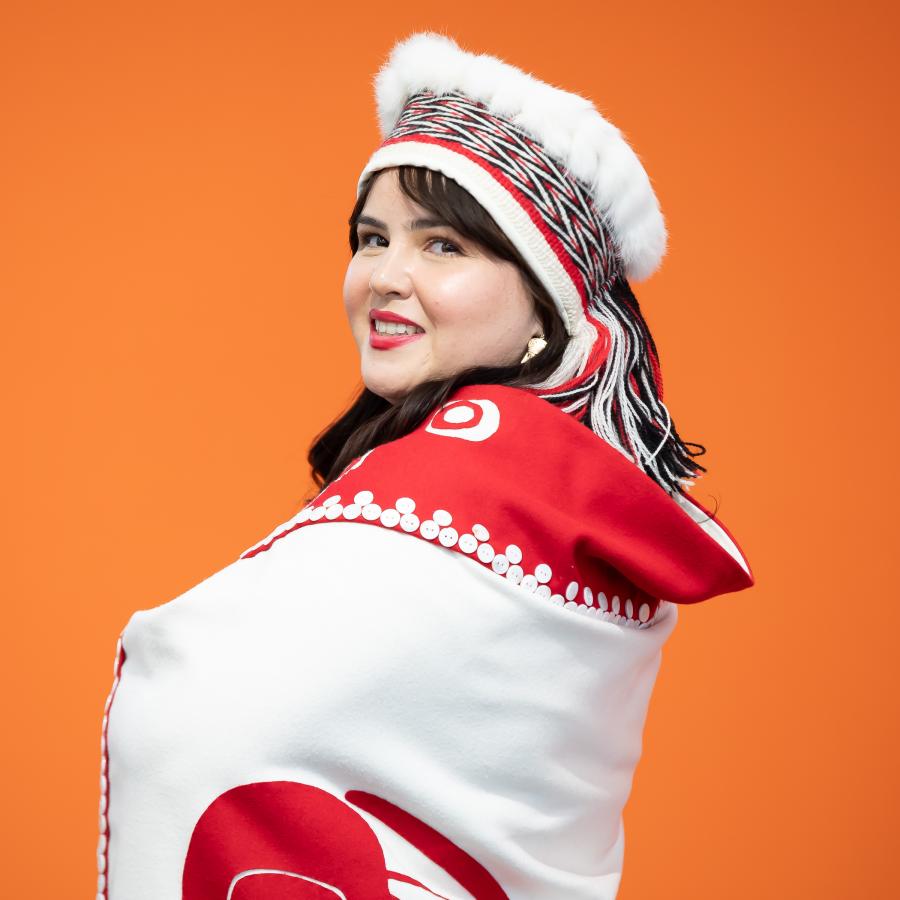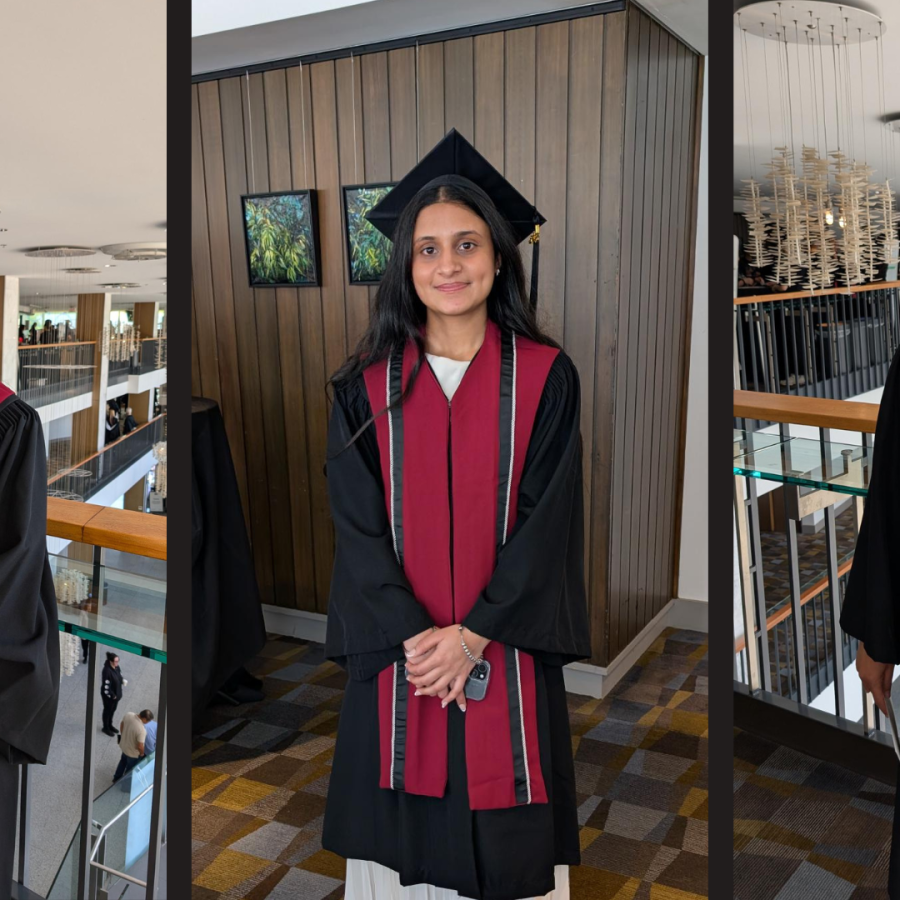Tucked into the creative heart of Langara College is a truly unique educational experience that blends traditional Coast Salish carving approaches with deep cultural exploration. For nearly a decade, Langara’s Indigenous Woodcarving program has offered students a chance to learn from Aaron Nelson-Moody, a Squamish artist, carver, jeweller, and educator.
Nelson-Moody, known by his Sḵwx̱wú7mesh name Tawx'sin Yexwulla, ("Splashing Eagle") and affectionately called "Splash," bring more than just woodcarving skills to the classroom. With a background in journalism, education, communication, and art, he creates a space where students are carving identity, history, and understanding.
From artist to educator: Splash’s story
Nelson-Moody began woodcarving in 1996, under the mentorship of North Shore master carver Xwalacktun. He expanded his skill set by studying jewellery engraving at the Native Education College in Vancouver and later gained metal repoussé technique with Valentin Yotkov. His carvings and metalwork can be seen across Vancouver's Lower Mainland, including the Western Red Cedar doors to the BC/Canada pavilion at the 2006 Turin Winter Olympic Games, installations for the 2010 Vancouver Olympics, house boards for the Squamish/Lil’wat Cultural Centre, and more.
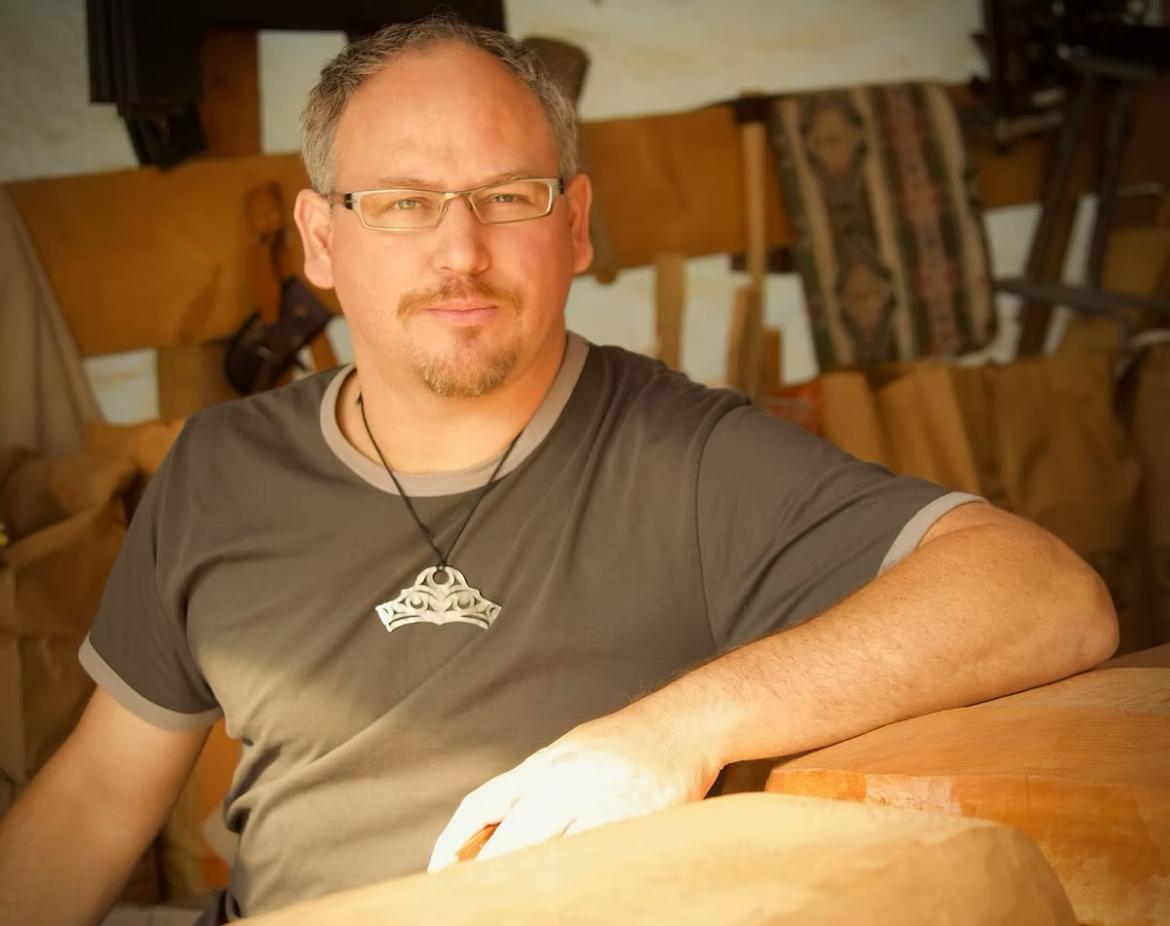
Before stepping into his role at Langara, Nelson-Moody taught traditional Coast Salish knowledge in communities across Scotland, Japan, and here in Canada. A return to his Squamish Nation community – and some encouragement from his elders – led him to develop Indigenous curriculum for public schools and contribute to the Utsáḿ Witness Project, a decade-long initiative that sought to foster a connection and a deeper understanding of Indigenous culture.
Connecting Cultures: The Utsáḿ Witness Project
Beginning in the late 1990s and predating Canada’s Truth and Reconciliation framework, the Utsáḿ Witness Project brought Nelson-Moody's gift for teaching to a wide audience. Revolutionary in its simplicity, the program invited thousands of non-Indigenous participants into Squamish territory for ceremonies, workshops, and dialogues aimed at fostering understanding and community-led solutions to land use and environmental concerns.
People had a million questions and there weren’t many places for them to go learn. We invited them to engage with Squamish Nation community members, do artistic workshops, and participate a little bit in our ceremony.
“We shared our culture and who we are with people,” said Nelson-Moody. By its completion a decade later 16,000 people had witnessed and learned about the richness of Indigenous culture from Nelson-Moody and other volunteers. “The goal was connection. To simply sit in a circle and talk.”
Carving out a fresh perspective.
Langara’s Indigenous woodcarving course is the only one of its kind in a public post-secondary institution in Canada. While other Indigenous-led programs exist, many are either closed to non-Indigenous students or focus solely on technical skills without cultural context.
At Langara, students are immersed in carving but also in Indigenous worldview, history, and self-reflection. The classroom becomes a place of transformation, particularly for students reconnecting with their heritage or exploring personal themes of identity and resilience. Conversations often flow beyond carving techniques into Indigenous philosophy, global issues, and lived experience. More than a course, it’s a community of learners discovering art, culture, and themselves.
There's a certain kind of calm and safety that we practice in the classroom. Physical safety, cultural safety, emotional safety. You cannot be stressed out and carve. You’ll cut yourself.
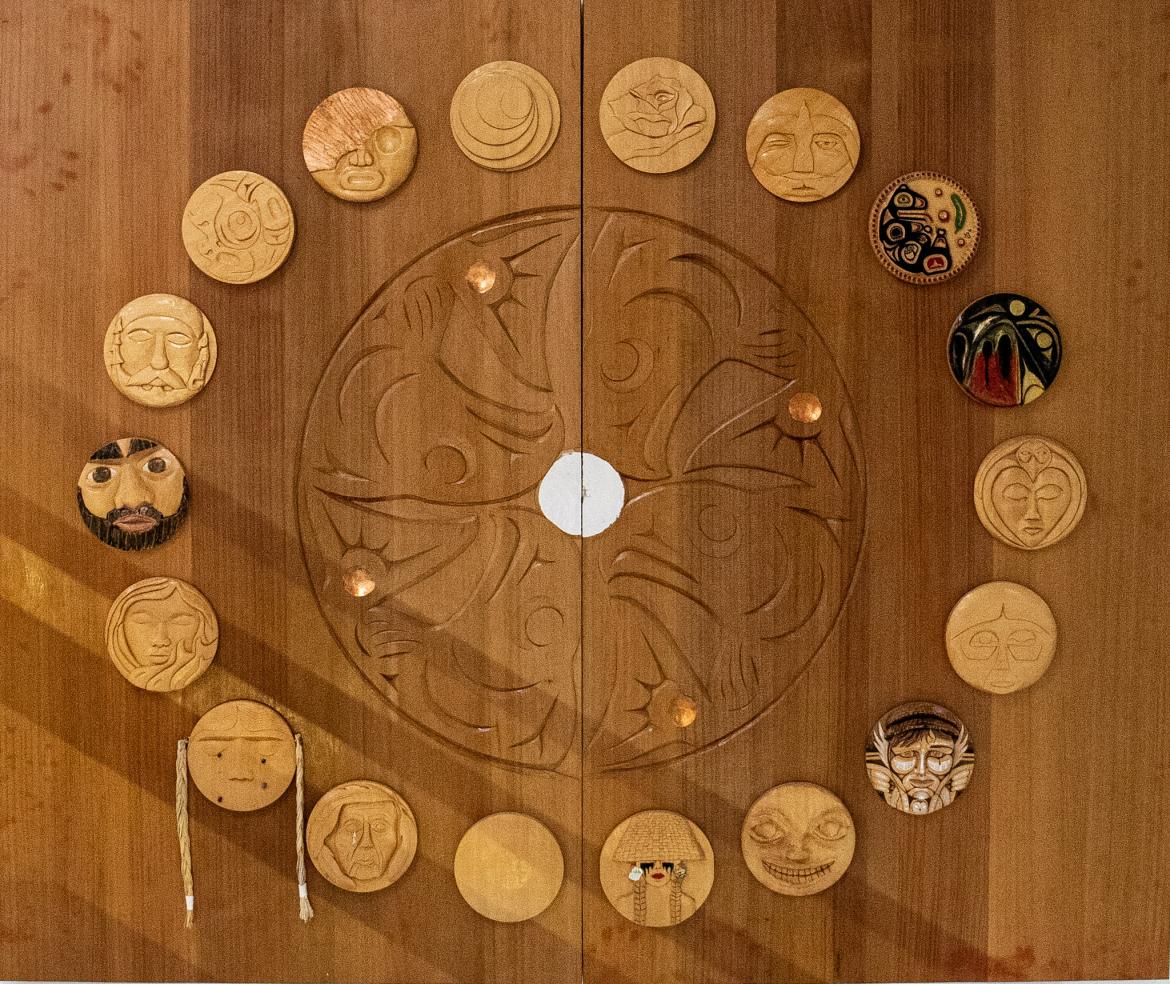
While from one of the recognized 3-Host Nations, Langara College is situated on a Musqueam village site, and Nelson-Moody is mindful and grateful to that ancient and vibrant community in his work here.
Indigenous Carving 2D and Indigenous Carving 3D are offered through Langara’s Fine Arts department.
You can view more of Aaron Nelson-Moody's work on his website.
